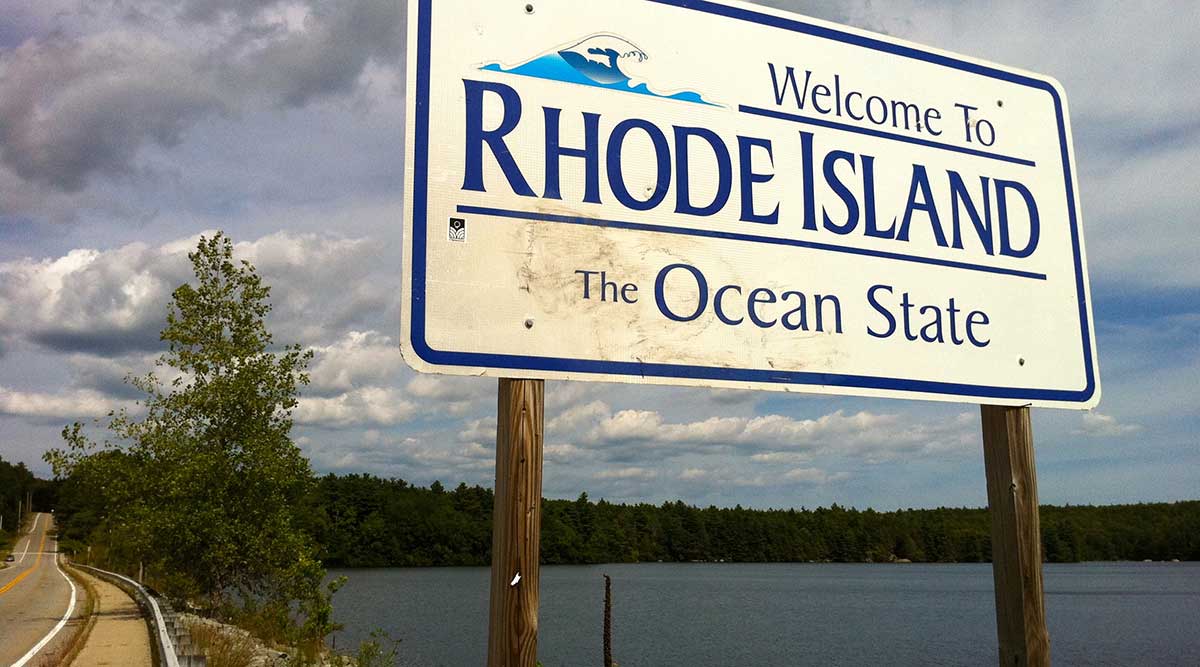Rhode Island Trucking Association Offers Alternative to Gov. Raimondo’s Plan

Maxwell upped the ante Oct. 28, hinting at possible legal action in charging that Raimondo’s proposal “discriminates against one type of vehicle. We’re questioning whether they can carve trucks out and once they carve trucks out, can they carve out Class 6 and 7 trucks to make it advantageous for local carriers?”
Rhode Island Trucking Association released an alternative focused on increases in fuel taxes and registration fees while threatening to sue if Raimondo’s proposal becomes law.
“I don’t know if it’s a lie, an oversight or they just plugged in a number, but the primary revenue stream for RhodeWorks comes from passenger trucks over I-195 from the Massachusetts line for about three miles into Providence. They stated a 1,100 truck count per day. Realistically, it’s in the 4,000 range. [The governor’s] main revenue stream comes from a flawed number. That to me is a game-changer. The numbers are concocted, and that will cause a shortfall.”
Maxwell cited a study by the American Transportation Research Institute that showed that twice as many trucks travel on Interstate 95 compared with I-195 where RhodeWorks maintains that four times as many trucks use the latter road.
The trucking group's plan would produce an estimated $10.8 million annually by raising the state’s 34-cent diesel tax by 18 cents, which would still be 3 cents shy of the tax in neighboring Connecticut. A $500 increase in truck registration fees, currently the lowest in New England, would generate an expected $1.6 million annually.
According to Maxwell, the plan would produce the same $220 million as RhodeWorks allocated to fix 453 of the state’s bridges unrelated to the 6/10 connector. Rhode Island has the highest percentage of structurally deficient bridges of any state, 22%. Starting in the fifth year, the Rhode Island trucking group's alternative would generate more than $25 million annually, enough to address the 6/10 connector, which consumes the vast majority of RhodeWorks' revenues.
“That’s going to take 80% of the funding [for a road that produces] just 12% of the traffic,” Maxwell said. “You’re taking money from the interstate carriers passing through, and you’re [devoting] it to a road that most will never see.”
The plan also would cancel Raimondo’s $13.5 million to help offset the tolling increase and devote that revenue to bridge and road maintenance.
“We can do this without tolls,” Maxwell said. “We can absorb an 18-cent diesel tax increase, mainly by thru carriers, and Rhode Island trucking companies can absorb a $500 increase in registration fees because it’s a lot more sustainable than tolls. A member with 10 trucks said, that’s $5,000 more a year. The number might scare you, but it’s a known entity. You could be doing $5,000 more per week in tolls by the time this thing plays out.”
It won’t be playing out for a while since Speaker Nicholas Mattiello resisted the calls for a special session this fall meaning that the Legislature won’t reconvene until Jan. 5.
Marie Aberger, Raimondo’s spokeswoman, said that the governor is pleased that Rhode Island Trucking Association has come up with an alternative but has two main concerns about the plan.
“It wouldn’t generate nearly enough money to tackle the enormity of the problem, and it would impose most of the costs on Rhode Island trucks and businesses,” Aberger wrote in an e-mail. “Shifting the burden from predominately out of state trucks, to predominately Rhode Island trucks might serve the policy interests of the national trucking lobby — who oppose user fees no matter what — but that doesn’t mean it’s good for Rhode Island.”
According to Rhode Island Office of Management and Budget Director Jonathan Wormer, 55% of RhodeWorks’ toll revenue would come from trucks that drive through the state without stopping. Under RhodeWorks, 17 bridges in the 1,212-square-mile Ocean State would have tolls but only for large commercial trucks.

